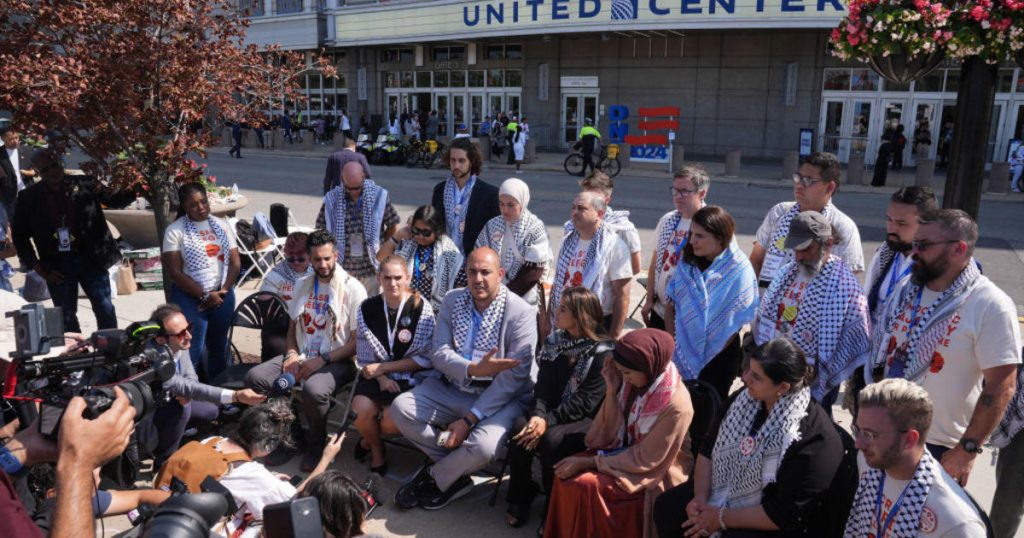The “uncommitted” movement, a group of pro-Palestinian, anti-war Democrats, declined to endorse Vice President Kamala Harris for the White House but also stated they would not encourage supporters to stay home or vote for third-party candidates. The group emphasized the importance of blocking former President Donald Trump from winning, citing his agenda that they believe includes accelerating violence in Gaza. They warned against votes for third-party candidates, expressing concerns that it could inadvertently lead to a Trump presidency due to the broken electoral college system. Organizers have been pushing Harris to support an embargo on U.S. weapons sent to Israel and for a permanent cease-fire in Gaza, where thousands have been killed in military strikes.
The uncommitted delegates held a sit-in at the Democratic National Convention in August to demand greater attention to the Palestinian cause, particularly by including a Palestinian-American speaker. Despite requests for a meeting with Harris, the group did not receive a response by their deadline. In their statement, they urged supporters to register “anti-Trump votes” while acknowledging that leaders within their movement may vote differently. They stressed the need to oppose Trump while expressing disappointment in the lack of direct engagement from Harris. The group’s decision is not a call for supporters to skip voting at the top of the ticket.
During an interview with the National Association of Black Journalists, Harris reiterated her support for a cease-fire in Gaza and Israel’s right to defend itself. She mentioned a one-time pause in May on a shipment of bombs but did not indicate any shift in U.S. policy on military aid to Israel. In response to the uncommitted movement’s decision, the Harris campaign spokesperson stated that the vice president is committed to earning every vote. The campaign sent representatives to meet with Arab American and Jewish American communities to address concerns and work towards a resolution in Gaza. The movement initially started in Michigan, a battleground state with a significant Arab-American population, drawn to the movement’s message.
The number of Michigan primary voters who chose “uncommitted” exceeded Trump’s margin when he won the state in 2016 and was close to Biden’s margin of victory in 2020. This highlights the movement’s potential influence in deciding election outcomes. The group’s focus on Palestinian rights and anti-war sentiments reflects a growing interest in these issues within the Democratic Party. While decisions on voting may vary within the movement, the overarching goal remains to prevent a Trump presidency and advocate for policies that align with their values. Despite challenges in engaging directly with Harris, the movement continues to push for their priorities on the national stage and convey the importance of their cause.


